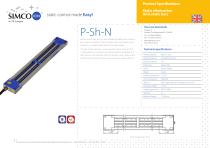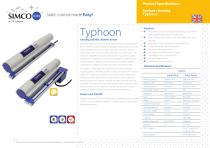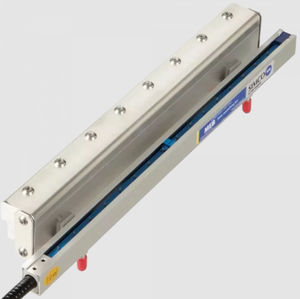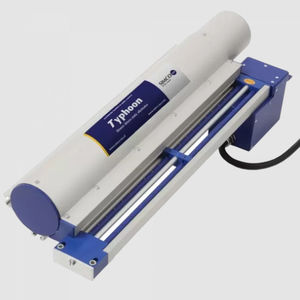
- Products
- Catalogs
- News & Trends
- Exhibitions
Anti-static bar EP-SH-N
Add to favorites
Compare this product
Description
The airknife is constructed of extruded aluminium with incorporated mounting grooves. This design provides a precise air volume over the entire width of the airknife. In the airkife tube a high air pressure appears and is flowing out of the airknife narrow outflow opening. The anti-static bar produces positive and negative ions which are blown onto the surface by the airknife. The electrons will now be exchanged, which causes the surface to be neutralised and the impurities to be removed. For use in hazardous zones, the Typhoon with the P-Sh-N-Ex anti-static bar is approved.
Airpressure sensor
Each Typhoon system is supplied with an airpressure sensor wich can measure the air pressure inside the airknife. If the pressure drops under the required level, the system does not work optimal. A system check is then neccessary, often it appears that the air filter needs to be cleaned.
Power unit A2A7M
Typhoon systems with EP-Sh-N anti-static bars incorporate a power unit type A2A7M. This unit contains an additional 12V power source for connection of the airpressure sensor.
Working distance up to 2000 mm
Surface cleaning
Low operational cost
Low noise
Incorporates Simco-Ion anti-static bars which quickly neutralize static, facilitating easy removal of particulate
Clean, uniform, high-velocity ionised air provides ‘‘one-step’’ cleaning
Direct-drive motors require little or no maintenance
Anodised finish for corrosion protection
Connection for pressure sensor
New design extruded aluminium profile
Cost efficient versus compressed air
Two mounting grooves
Small blower/ low noise level
Catalogs
*Prices are pre-tax. They exclude delivery charges and customs duties and do not include additional charges for installation or activation options. Prices are indicative only and may vary by country, with changes to the cost of raw materials and exchange rates.







